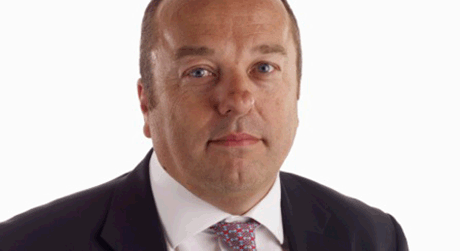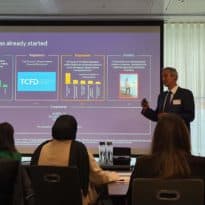Mass reporting on Environmental Social Governance factors could backfire, warns David Coombs, Rathbones Multi-Asset Portfolios fund manager. Better to have active engagement and a deeper understanding of the companies you invest in.
I recently read Woke, by Tatiana McGrath, while on holiday in Cornwall. Brilliantly funny and a must read for all Millennials and Generation Z-ers – I immediately handed it to my deputy, Will McIntosh-Whyte, on my return to the office.
We live in sensitive times. Social media has evolved to give everyone a voice. It has been a great democratisation of information and, as we know, information is power.
However, I think a side effect has been too much power to the serially offended. This is leading to virtue signalling and in many cases over-excited calls to action.
There is a danger that Environmental Social and Governance (ESG) investing falls into this cauldron of “wokeness”. Will and I are serious about corporate governance, as you would expect, and we take an active role in voting at all our company meetings. Like many others we use a third party agency to provide research and advice; ISS in our case.
Often we vote with ISS when they are against management as they look to promote the strongest possible governance. But more recently I have voted with management instead, as ISS and others like it take a standardised approach.
The problem is governance advisers now want all companies to produce reports on all policies relating to issues like gender equality, modern slavery, climate change and so on, irrespective of the business type or the management’s track record in these areas. Some management teams are saying no as they feel they are costly and the outcomes reported are misleading or irrelevant.
All of these issues are important of course. I only want to invest in those companies that take them seriously and avoid those that do not. We’ve said it many times – we want to invest only in companies that see customers as key stakeholders, ranking alongside their shareholders.
Only yesterday we met with the management of Estee Lauder and, among many topics, raised the increasing concerns of consumers around ESG issues. Estee is working on all these areas, including replacing plastics and improving recycling of packaging. It sees this as a key strategic goal (or one or its seven “pillars”). Estee doesn’t engage in animal testing unless it must do in countries where regulators demand it for certification processes. And Estee says it is trying to persuade them to use the alternative methods they have developed.
Why is the company taking this so seriously? It may be partially due to morality, but Estee also knows this issue is vital to remaining relevant and to defend and grow its business. This is a company I can own.
Analysing a company on ESG factors should follow a risk-based and bespoke approach. We know the companies who are most at risk from employee exploitation, for example, and either we shouldn’t invest in them or we should insist on meaningful reports demonstrating best practice. This should not become a tick box exercise or it will become useless as an input to our process and as a meaningful check.
Will and I don’t manage ESG funds, but we do work closely with David Harrison who manages the Rathbone Global Sustainability Fund – many of our views crossover with his and our portfolios have a number of common holdings. Indeed he and I visited the States last year to meet companies and will do so again later this year.
In the meantime, another good read to recommend – David’s report on his latest US visit, In pursuit of green .It covers a number of our companies and he poses some interesting questions.
So ESG should be in the mainstream and not allowed to be taken over by the twitterati. Customers care about these issues and it will affect their purchasing decisions. Taking these seriously and acting on them is good business – not doing so will bring irrelevance and falling revenues. We might also, in an indirect way, improve life for people and avoid the need for extreme politics. This feels like a win win.



































